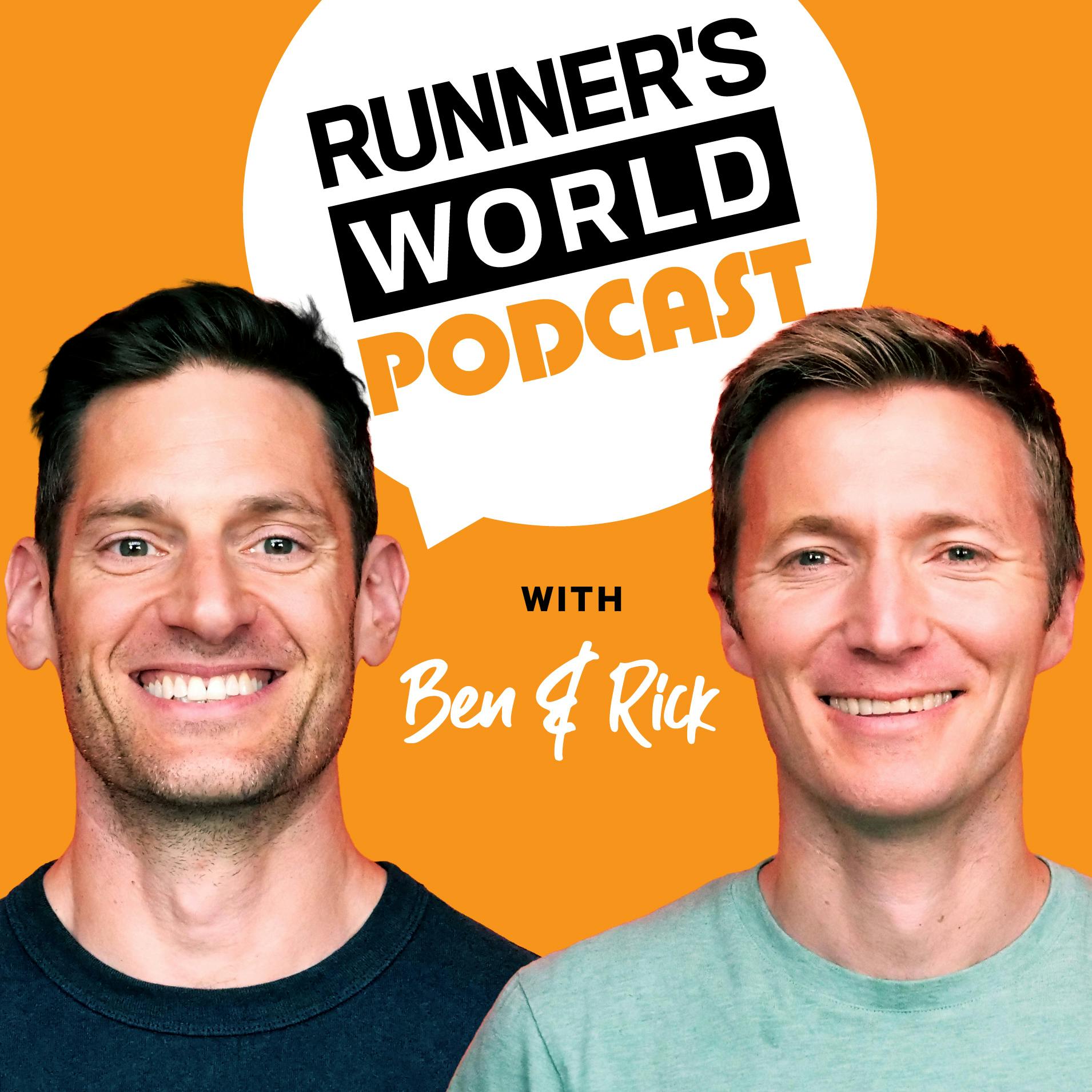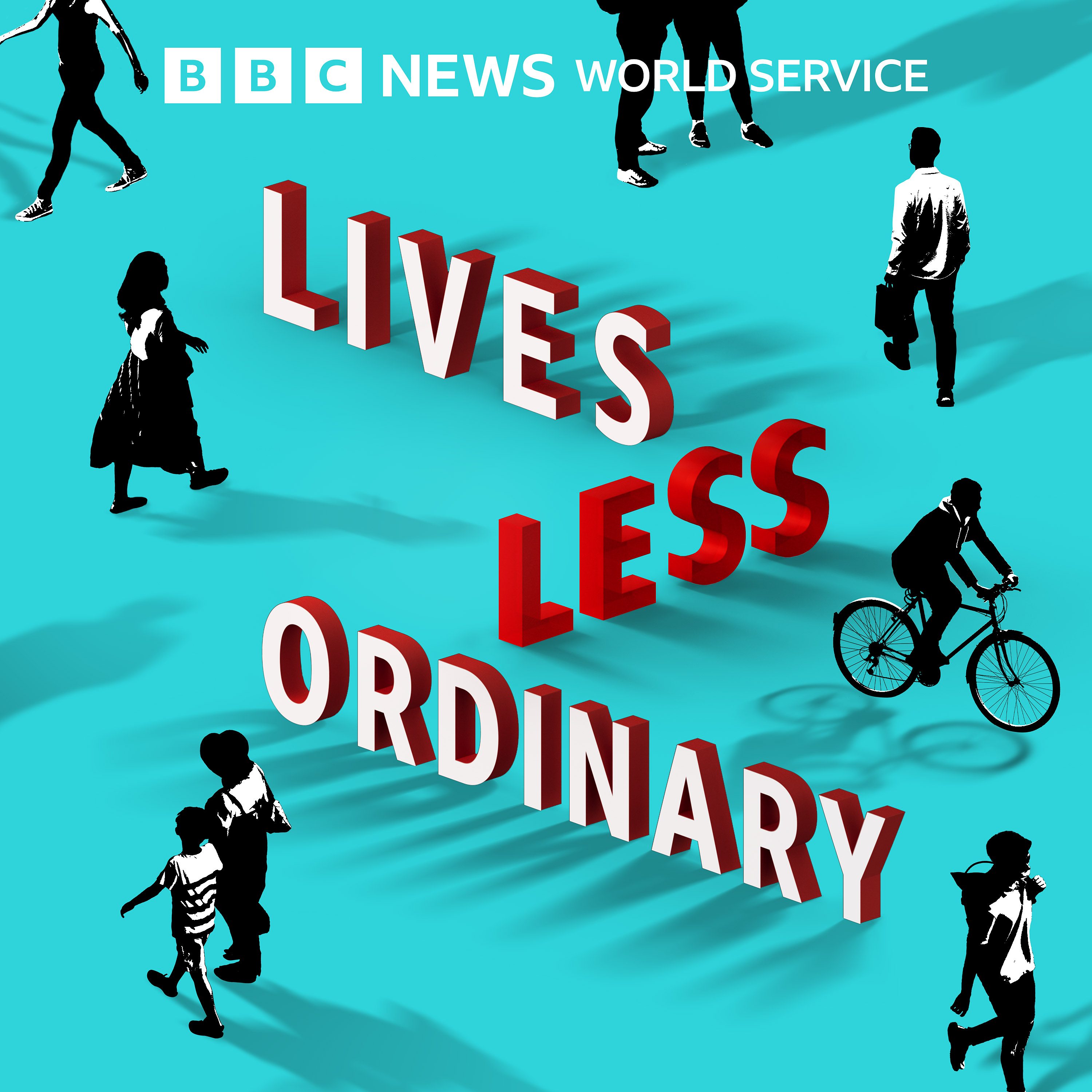
Brian's Run Pod
Welcome to Brian's Run Pod, the podcast where we lace up our running shoes and explore the exhilarating world of running. Whether you're a seasoned marathoner, a casual jogger, or just thinking about taking your first stride, this podcast is your ultimate companion on your running journey.
Join us as we dive deep into the sport of running, covering everything from training tips and race strategies to personal stories and inspiring interviews with runners from all walks of life. Whether you're looking to improve your race times, stay motivated, or simply enjoy the therapeutic rhythm of running, Brian's Run Pod has something for every runner.
Brian's Run Pod
My interview with Paul Piper Part Two.
Use Left/Right to seek, Home/End to jump to start or end. Hold shift to jump forward or backward.
Unlock the secrets to perfecting your run as I, Brian Patterson, engage with the wise and whimsical running coach, Paul Piper. This week, we tackle the meticulous art of crafting personalized coaching plans for runners, newbies, and marathon veterans alike. With Paul's affectionate term for clients, "Coachees," he underscores the value of an extensive initial assessment. Prepare to delve deep into a runner's personal history, injury background, lifestyle, and nutrition—it's not just about pounding the pavement but building a comprehensive strategy for long-term success. We'll unravel the intricacies of the 80-20 training intensity rule and illuminate why those "middling miles" could be holding you back.
As the countdown to race day ticks, Paul and I serve up a feast of knowledge on the symbiotic relationship between training and nutrition. Sidestep the common pitfalls of tapering nutrition and learn the modernized approach to carb loading that could redefine your race prep. Additionally, we dissect marathon-specific interval training, revealing how alternating miles at race pace can simulate your big day and train your body to recover on the move. This isn't your average runner's guide—it's a treasure trove of coaching expertise from the masterful Paul Piper, tailored to help you smash your personal records and cross that finish line with vigor.
Perfect Split Running
Brian's Run Pod has become interactive with the audience. If you look at the top of the Episode description tap on "Send us a Text Message". You can tell me what you think of the episode or alternatively what you would like covered. If your lucky I might even read them out on the podcast.
Instagram
So you're thinking about running but not sure how to take the first step. My name is Brian Patterson and I'm here to help. Welcome to Brian's Rompod. Welcome back to Brian's Rompod, and this is Brian Patterson talking. Now on to the second part of my discussion with Paul Piper, the first one being last week. So if you haven't had a listen, please do have a listen Now. Starting a coaching business in running industry is no small feat and Paul walks us through his initial step. So I asked him, as part of the second part of our discussion, how he assesses prospective clients, or as he calls them, co-cheese. I really do hope you enjoy our chat and, as I said, please do have a listen to the first part. So I know you said when we were corresponding, you said you know when you take them on, then basically, it will be like you know you to assess them. It can take up like a couple of hours or something.
Speaker 1:Yeah. So I mean, what are you looking for when you first, you know, when they first come to you? I mean, what kind of questions are you going to be asking them?
Speaker 2:Yeah, so I send out a questionnaire. I think it's maybe 20 or 30 questions and it just builds a real picture of their running background their history in running what their expectations are, what limits they might have around their working lifestyle. There's a few questions that touch on nutrition. I mean, I'm not a nutritionist, so I can't write diet plans, but I can provide guidance in certain areas, yeah, access to gyms, questions on treadmills, etc.
Speaker 2:What percentage they run on the roads in terms of injury prevention, injury history as well is very important and then we go into. So then we'd arrange either a meet up in person or, if it's not possible, sort of like on Zoom.
Speaker 1:Yeah.
Speaker 2:Yeah, it typically lasts anywhere from well over an hour to sometimes two hours. Yeah, so it can get quite in depth, all right, but I'll prepare beforehand and I'll build up a picture. Yeah, and the consultation is based around the questionnaire and, if anything, the client wants to ask.
Speaker 1:So you can pretty much assess from that first consultation.
Speaker 2:You get a broad idea and like a good foundation of knowledge on the client. Yes, okay, but it's an essential part of the coaching package to get off on the right foot. Yeah, definitely yeah.
Speaker 1:Okay, but also, at the same time, you'll know as to what is, you know, like. If they work full time, when can they run when you? Know how often they're looking to run. Yeah, absolutely yeah.
Speaker 2:Yeah, so it's really important to build a running program that's achievable within normal working life because, yeah, we've all got stuff going on outside of life and we don't want to become overwhelming, so it's got to fit into working life as well. So yeah. And travel, sometimes for people who travel away from work and stuff.
Speaker 1:Have you had anyone come to you and said, well, I don't know if I really enjoy running, but I'd like to enjoy it, or something like that? Or the majority of the people do. They kind of you know, say you know I enjoy running, but I want to take it to the next level.
Speaker 2:It generally tends to be that. The second one yeah, I've not had any complete beginners at the moment. Yeah, it tends to be like a conversation. I run a half marathon in such a time and now I've got Manchester marathon coming up in three months, would you be able to help and work with me? And yeah, so it tends to be along those lines, really, or along the lines I've been running for five years and I've hit a plateau and I'd like to reach the next stage, if that's possible. It tends to be, that Great that's fantastic.
Speaker 1:What do you think are sort of the common mistakes that sort of beginners sort of make?
Speaker 2:Yeah, there's a few that come up quite regularly. Actually a common phrase that I use I don't know if other cultures use it, but I call it too many middling miles which is broadly running the same pace all the time, or roughly the same pace all the time, whereas what you wanna be doing is I don't know if you've heard, of it the 80-20 rule.
Speaker 1:I have heard of it. Yeah, yeah.
Speaker 2:I mean it doesn't have to be the exact numbers, but as a broad kind of structure or an idea to instill in someone it's probably quite close to where you wanna be. You wanna be running generally easy for 80% of the time and then for 20% of the time that'll be taken up during your sessions and tailored running as set by the coach, hopefully so yeah. And by easy I mean when I tailor an easy run. You can't run it too slow. That's why I always try and instill with the runner.
Speaker 2:Effectively. It's a recovery run. It's recovering from the previous session and it's getting you ready for the next hard session. So, yeah, that's quite a key thing, Can?
Speaker 1:I just ask you here is that basically, let's say, for instance, someone who's quick like you know, who may be sort of three hour or 30 marathon or something like that, and then they do, they can run at quite a fast pace or do intervals at a faster pace and do at a particular pace and do slower recovery runs or long runs at a certain pace.
Speaker 1:So there's kind of that broad range. Someone who's really slow, let's say me, let's say my best 5K is 6.5, 6 minutes, 30 per kilometer, so it's like 30 minutes, whatever. So I mean I know it's kind of a bit off the top of my head, whatever. So if I was looking to, let's say, do recovery run, maybe longer runs like you know, 7, 8k or something like that, so am I looking to do something like 7 minutes or 7.5 minutes or even walking pace, that kind of thing? And I'm kind of putting you on the spot a little bit.
Speaker 2:Yeah, I mean certainly way, way slower than your 5K pace for sure yeah yeah, and slower than your. I don't know if you've done a marathon, have you? No, no, no, I've never done one though, but certainly slower than your notional marathon pace. Right so yeah, 100% would need to be doing that. Yeah, and that is the way to progression, really Really, yeah.
Speaker 1:And is that a skill? From what you're saying, is that a skill as much of a skill, you know, as doing the interval sessions and running, you know, maybe six times 400 at a 5K pace or whatever you know. It's just as much as a skill to run at that recovery, slow recovery pace because, you know it, sometimes people can go.
Speaker 2:I can run faster than this. It's just an integral part of training as the sessions yeah for sure. And you can't have one without the other really. I wouldn't have thought it was a proper training plan. A good example is I remember seeing an interview with a Kenyan elite lady who I think her marathon PB was under 220, I think so at the time like world level Right.
Speaker 2:She said her easy runs. So her marathon pace was well below 520 a mile and she said her easy runs were anywhere between eight and nine minutes a mile.
Speaker 1:Wow, okay, so you think that made that someone who is admittedly it's at high altitude. Yeah.
Speaker 2:Doing her easy runs, but still that is some stretch of pace between the two. Yeah, so I didn't do her any arms so yeah, but I think it's common. I don't think most people would realize how easy real top elite runners run most of the time.
Speaker 1:For sure, I know when I was doing quite a bit of running this is probably 20, 23 years ago and I know what helped me was I was doing a lot of heart rate training and trying to keep it within a particular heart rate zone. And that really helped me.
Speaker 2:Yeah.
Speaker 1:Because I just felt I had a lot in reserve.
Speaker 2:Yeah, I did the same when I'm out for an easy run. I will try and keep. I mean, everyone's heart rate is different. Different zones, but for me personally, my easy kind of zone, zone two or high zone one certainly zone two would be 130 to 140. And if I get above 140, I will look at my watch and I think, oh, just need to bring this back a little bit, it's not really an easy effort.
Speaker 2:So yeah, yeah. So the heart rate monitor can be very helpful in terms of easy running as much as it can.
Speaker 1:Yes.
Speaker 2:Be to get it up to zone three and four.
Speaker 1:Yeah, because I used to have the polar ones and I used to sort of beat pet me prefer, but it did help me maintain that easy pace, whereas I think it's really tempting, you know, even if I mean I know you can get watches which can set your cadence or your your kilometer pace. But I just found that I just remember thinking you know it's, you know I've done a good long, easy run.
Speaker 2:Yeah.
Speaker 1:And I just felt I just had a lot of reserve. Yeah, and that's exactly what you're looking for, isn't it?
Speaker 2:Yeah, and sometimes after when your legs feel tired and your muscles are aching, actually getting out for a short, very easy run, you can come back and you actually feel better because you're like moving your muscles and stretching yourself a little bit.
Speaker 1:Yeah.
Speaker 2:So and releasing a bit of tension. So, yeah, yeah, I do wear a heart rate strap, and the problem with the wrist based heart rate on your watches is I don't know if you've got one, but they tend not to be as accurate.
Speaker 1:Yeah, I've heard that yeah.
Speaker 2:Particularly at high pace sessions. They just lose their accuracy a lot.
Speaker 1:So the technology's not there yet, yeah, and also I think when you start the run, the it's like your heart rate spikes. Yeah, yeah, yeah, yeah, yeah, there's a bit of a lag.
Speaker 2:But. But the chest heart rate monitors are really accurate. Yeah, and you can really tell that when you do an interval sessions, because you can see a, a nice graph. It's nice and smooth up and down where it takes in the rest, and your heart rate drops and, yeah, that's a good sign.
Speaker 1:That's a good sign. Well, maybe we could talk about heart rate. Maybe a latest. Yeah, another time because I know that's a totally different subject.
Speaker 2:I think we could do a hung podcast.
Speaker 1:So so you talked about that. You know there are sort of common areas that people sort of tend to go a little bit too fast. They don't do the 80, 20 wars. Are there any other areas that you feel?
Speaker 2:I mean I briefly touched on it earlier but jumping straight into the marathon is is a high risk strategy really. I do encourage people to build up their races. Maybe look at a 10K first and then natural progression onto a half marathon and then maybe think about a marathon. But jumping straight into you know, going from next and now running to having a marathon in three, four months time is quite high risk and it's a heavy load on the body. Yeah, and your body does need time to adapt and build and build your strength into the marathon because it's it's an incredibly catabolic experience on the body.
Speaker 1:It's like a total breakdown. Yeah, yeah, exactly. I think it's a man made event, isn't it? Yeah, so yeah.
Speaker 2:Is that sort of like perfect distance where you know, without fuel which a lot of people would do, including me on the first marathon you know you will hit the wall inevitably at 20 odd miles. Yeah and you still got six miles to go, which is not a nice thought.
Speaker 1:Okay, so that's a couple of things to talk about, but basically the moving on. What advice would you give to people in terms of nutrition wise, leading up to A particular race doesn't have to be a marathon, could be a 10k, because probably that that week is made there, maybe sort of tapering. Hmm, yeah meaning that they're not doing as much running. Hmm but is there any advice you give?
Speaker 2:in terms, of you know, general nutrition you know while they're training or even prior. I would tend to keep. As long as your diet is good and healthy, I would keep the diet the same in terms of content and slight nutritional value. You don't want to be thinking, oh, I'm tapering now I need to eat less calories. I think that's the wrong way to go. You need to keep your body sustained. Going into that last week, yeah. I think. Personally I think carb loading is a little bit over preached.
Speaker 1:Is it outdated?
Speaker 2:Yeah, possibly I think you need to take on extra carbs, but I think you will be rested during that week, so your natural store of carbohydrates will be good anyway. So I wouldn't obsess about eating six bowls of pasta the night before a marathon. That's probably too risky.
Speaker 1:Yeah.
Speaker 2:I used to interestingly, I used to carb deplete on the Monday, tuesday, wednesday of my marathon week, which meant literally zero carbohydrates, and then I would load quite extensively. So what was the benefit of that? The idea that you become so depleted that on the so then on the Thursday, friday, saturday, when you load properly, that your body takes on that little bit extra carbohydrate.
Speaker 2:But I mean it was a theory at the time and it's kind of gone out the window a little bit. Now it's not in vogue, but it was so punishing on the body that I find a week that yeah it's not something I want to go back to. As you get to the Wednesday and your heart rate is elevated. You're not sleeping properly.
Speaker 1:Oh right.
Speaker 2:Yeah, so going three days without carbohydrate is really punishing and I don't think you need that in your marathon week.
Speaker 1:Right, yeah, okay.
Speaker 2:So, yeah, just eat sensibly. Don't think about cutting back. Maybe increase your carbohydrate.
Speaker 1:Because you need the calories for the training Exactly If you're doing a marathon or half marathon or whatever. Yeah, yeah, maybe have an extra jacket potato the day before or something like that, but nothing substantial Talking about the moving on to sort of your training and when you're taking someone on, do you find that people have maybe preconceived ideas about what they should be doing training wise, or do you maybe have?
Speaker 1:some people who don't really know or need some guidance about training, Because at the moment there may be someone who just goes out for the run and then maybe increases the distance, but there's no science behind it, there's no interval training or hill running. How do you basically what I'm trying to say is that how do you educate someone to include all these different little elements to help improve their running?
Speaker 2:Well, I write a training plan and I'll put notes below each session. I'll try to explain it, certainly initially within a coaching relationship, what the purpose is of each session and I'll try and each email I'll provide a holistic view of how the training is going over a three to four month block and whether we're in the initial foundation endurance stage or when we start to slowly transition into event specific training. But yeah, I generally find that all my clients are very receptive to my ideas.
Speaker 2:And they're quite happy to have it presented in front of them and having the accountability of a coach there and trusting the process really.
Speaker 1:So, because I hear this a lot foundation training. So what's foundation training? So what would that entail?
Speaker 2:So, for instance, the marathon if you had a 14 to 16 week block ideally sometimes it's a lot, tends to be a lot lower than that, but ideally you'd want that sort of length of block. So then for the first eight weeks you could just build on strength and build your aerobic capacity, getting some hill works, build your leg strength, and then it's not like a flick of a switch. Then you go into event training. It's like a slow transition and then you might start seeing more marathon paced intervals and mile intervals within a long run, because you would hope in a training block that your marathon pace will feel a lot different 60% into a marathon block than it would do if from day one. Doing marathon pace work would probably feel quite tough in the first couple of weeks yes, if a coach prescribed that and that could be a bit demoralising. It's amazing what the body can adapt to over time and hopefully you get to the marathon event and two to three weeks before you can do a long run and mix in 10 to 15 miles at marathon pace.
Speaker 1:Oh right, ok, OK, ok.
Speaker 2:So so let's say, and obviously you build up the long runs, you probably wouldn't get to more than 16 miles. I mean, every athlete's different so it's very hard to generalise.
Speaker 1:Yeah.
Speaker 2:Yeah, you don't get into that long run territory ie 15, 16 miles plus until you've got a good five to six weeks solid training.
Speaker 1:Right, yeah, with no injuries. Yes, yeah, exactly. Yeah, yeah, that's right. So they've done that foundation, and so is what would be after that in terms of next, next, next, next period.
Speaker 2:So you generally mix in obviously harder sessions, but cutting back on the longer runs or maybe keep that in. Oh, no, well, the longer runs will just get longer throughout the clock.
Speaker 1:Yeah, ok.
Speaker 2:I mean there's infinite ways that you can play with a long run. You can sometimes I'll mix in like a marathon pace mile every fifth mile or every third mile, depending how hard I want it to be. Yeah, or say, at the end of a long run, I want you to run three or four miles at marathon pace, which will be quite tough generally. Yeah, the interval sessions would broadly get longer on some weeks, so you might be doing, instead of like 5k, 10k intervals, you probably took more towards half marathon intervals.
Speaker 1:Right.
Speaker 2:So something like three times 10 minutes at half marathon pace, for instance. Right, yeah, okay, another good one is alternate miles, so you might have something like a 10 mile run, and so one mile at half marathon pace and then the next mile at slightly above marathon pace, and so on.
Speaker 1:Hmm.
Speaker 2:Pretty tough run, but the idea being that you teach your body to just recover slightly at your marathon pace. Is this what they call float, or is it floats? Yeah, alternate miles floats.
Speaker 1:Yeah, okay, not really a float, but you know, because marathon pace is still quite hard.
Speaker 2:Yes, so when you're teaching your body to just recover slightly or feel slightly more easier at marathon pace or just above, then yeah, that's quite a good winning formula.
Speaker 1:It's not a session I'd give every week. Yeah, this might seem a silly question, but basically the ultimate goal is is that if you have a marathon because obviously everyone's marathon pace is going to be different- so you know yeah, and you're basically teaching your body to sustain a pre-determined marathon pace to complete. You know that longer distance to complete it sort of thing yeah.
Podcasts we love
Check out these other fine podcasts recommended by us, not an algorithm.

Life Changing
BBC Radio 4
Tech Life
BBC World Service
Runner's World Podcast
Runner's World UK
Buzzcast
Buzzsprout
Newscast
BBC News
Understand
BBC Radio 4
Cyber Hack
BBC World Service
Ghost Story
Audible| Pineapple Street StudiosDiz Runs Radio: Running, Life, & Everything In Between
Join Denny Krahe, AKA Diz, as he talks with a variety of runners about running, life, and everything in between.
Uncharted with Hannah Fry
BBC Radio 4
The Global Story
BBC World Service
The Coming Storm
BBC Radio 4
Lives Less Ordinary
BBC World Service
Do Epic Shit Today Podcast
Hannah Mulhern
The Rest Is History
Goalhanger
